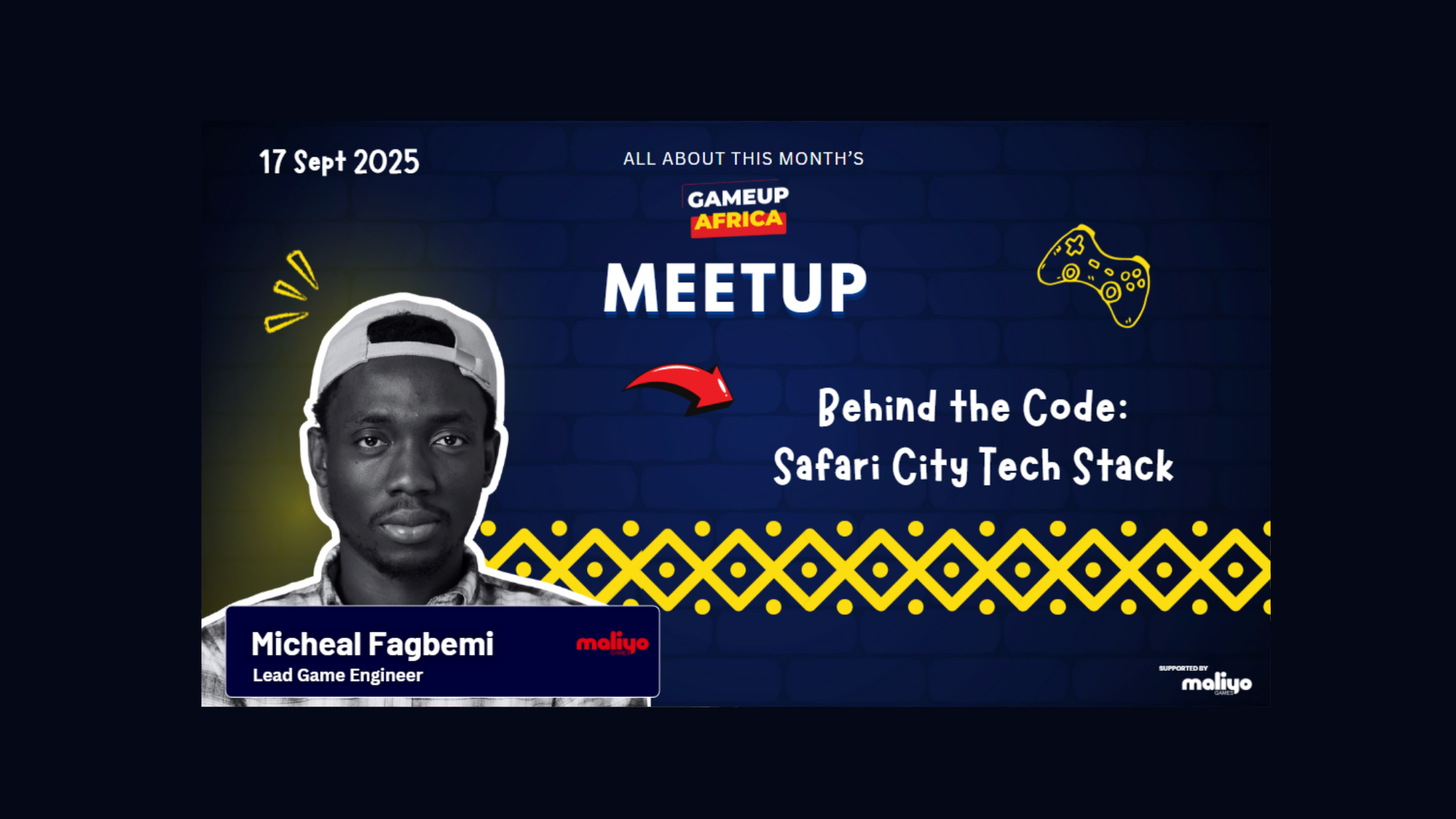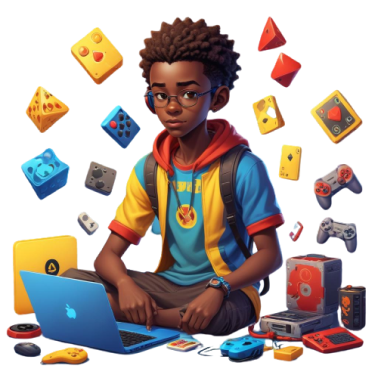The September edition of the GameUp Africa Meetup offered a deep dive into the making of Safari City, a match-3 renovation game and Maliyo Games’ flagship title. This month’s session featured two speakers: Micheal Fagbemi – Lead Game Engineer at Maliyo Games, who unpacked the tools and tech powering Safari City. Alongside, Nicole Gesare – GameUp Africa alumna and current participant in GameUp Africa Elite showcased the newly launched Merge Mini Game, now live inside Safari City.
~
Micheal Fagbemi: The Safari City Tech Stack
Micheal, with over seven years in the game industry, has led engineering on titles such as Disney Iwájú: Rising Chef and Whot King. At the meetup, he broke down the technical backbone of Safari City.
~
Why Unity?
Safari City is built with Unity 6, which Michael described as the best fit for Maliyo’s workflow. Its cross-platform compatibility makes it easy to build for both iOS and Android while supporting rapid iteration. Unity’s flexibility also allowed the team to create custom in-house tools to speed up workflows.
~
Level Design & Cloud Systems
- The team uses handcrafted tools to design unique match-3 levels while also employing algorithms for procedural generation to balance difficulty.
- Levels, events, and the in-game economy are hosted on the cloud, giving the developers real-time control to tweak difficulty, prices, or daily rewards without requiring users to download a new build.
~
Renovation & Animation
- Safari City’s core renovation loop is powered by a sprite library and auto-rigging tools, enabling scalable animations for buildings as they transform from “before” to “after.”
- Animations and UI effects rely heavily on code-based tweening libraries instead of Unity’s built-in animator, making them lighter, scalable, and optimized for mobile devices.
~
Development Workflow
Micheal outlined Maliyo’s engineering process:
- Start with task prioritization (high-priority bugs/features first).
- Design first, code later – UML diagrams and flowcharts before implementation.
- Share minor QA videos for peer review before full builds.
- Maintain scalability and flexibility so features can be tweaked or disabled remotely.
~
On AI in Game Development
Micheal also addressed the role of AI tools in coding. While useful for repetitive tasks (e.g., refactoring or renaming variables), he cautioned beginners not to rely on AI for architecture or design:
“AI can write small code snippets, but it cannot think through full architecture. As a beginner, you need to understand the system yourself, otherwise you’ll end up with code you can’t explain or debug.”
Maintain scalability and flexibility so features can be tweaked or disabled remotely.
In Case You Missed It…
🎥 Watch the full recording on the Maliyo Games YouTube channel.
~
Nicole Gesare: The Merge Mini Game in Safari City
After Micheal’s session, Nicole Gesare, walked the audience through the Merge Mini Game her team developed and which is now live in Safari City.
~
Gameplay
- Players merge identical fruits to evolve them into higher-tier fruits.
- Each round gives an objective fruit to reach within a time limit.
- Successful merges earn keys that can be used in Safari City’s renovation loop.
This mechanic was added as a retention strategy to break the monotony of traditional match-3 gameplay and provide fresh engagement.
~
Development Process
- Nicole’s team worked in sprint-based cycles, pitching, planning, and iterating on features every two weeks.
- They used Unity 6 for seamless integration into Safari City.
- The project involved mobile-first adaptation, redesigning from an initial desktop concept to touch-friendly gameplay.
Nicole credited teamwork and mentorship through GameUp Africa Elite for helping her team successfully launch the feature.
~

~
Play Safari City
Don’t forget — the latest update of Safari City is live! Download or update today to experience the new Merge Mini Game and explore the city like never before.
👉 Download on Android | Download on iOS
✨ That wraps up our September GameUp Africa Meetup recap. Stay tuned for October’s session, and keep building, learning, and leveling up with the community.
Meetup. Until then, keep playing, keep building, and keep telling African stories.
Don’t forget to follow us on social media at @gameupafrica_ and GameUp Africa’s LinkedIn page.






